In addition to teaching, researching, and mentoring students, IUP’s faculty members are often part of local, regional, national, and international groups and nonprofit agencies offering expertise in a variety of fields.
 John McCarthy, a professor in IUP’s Department of Counseling and director of IUP’s Center for Counselor Training and Services, is a member of the Westmoreland County Suicide and Awareness Prevention Task Force, among other organizations.
John McCarthy, a professor in IUP’s Department of Counseling and director of IUP’s Center for Counselor Training and Services, is a member of the Westmoreland County Suicide and Awareness Prevention Task Force, among other organizations.
In observance of tomorrow’s Annual International Survivors of Suicide Day, Dr. McCarthy authored a powerful editorial in the Pittsburgh Post-Gazette on November 17.
Titled “Let’s Talk about Suicide,” the editorial points out that the topic of suicide is often a taboo topics for families, communities, and societies. However, Dr. McCarthy notes that while homicides are often in media headlines, suicides rarely make the news.
He then offers the startling figure that the act of suicide took the lives of more than 34,000 Americans in 2007 (according to the Centers for Disease Control). This compares to more than 18,000 homicides commited that same year.
He also shares data from the American Academy of Suicidology that indicate that more than 1,500 Pennsylvanians lost their lives to suicide in 2008. And, for every life lost, as many as 25 people attempt suicide.
He ends his editorial urging awareness and discussion.
“Suicide. It is a sensitive topic, to be sure, yet it too often is on the Taboo List of things to discuss. Let’s remove it. Let’s talk.”
Dr. McCarthy is well-known in the field of counseling. In addition to his work at IUP and with this regional group, he serves on the board of directors of the Center for Credentialing and Education, a corporate affiliate of the National Board of Certified Counselors.
During spring 2011, he seved as an academic visitor at the Faculty of Education at the University of Cambridge. He is widely published and, since 2009, has participated in the International Academic Fellowship Program in the Higher Education Support Program of the Open Society Institute. In this role, he works with the Department of Psychology at Yerevan State University in Armenia.

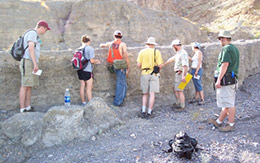
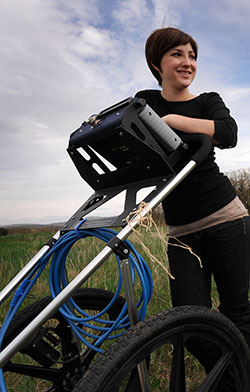 For example,
For example, 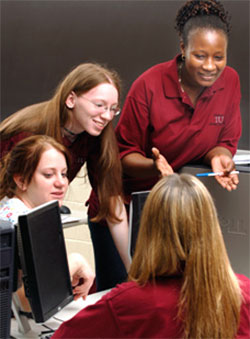 For almost a decade, IUP has been one of the leading universities in the nation focusing on the issue of cybersecurity, or information assurance. Information assurance addresses all of those issues surrounding security of computers and data. IUP is one of fewer than one hundred universities in the nation recognized by the National Security Agency and the Department of Homeland Security as a national Center for Academic Excellence in Information Assurance. One of the things that sets IUP’s program apart is that it combines the disciplines of criminology and computer science, offering a unique perspective on this fascinating field of study.
For almost a decade, IUP has been one of the leading universities in the nation focusing on the issue of cybersecurity, or information assurance. Information assurance addresses all of those issues surrounding security of computers and data. IUP is one of fewer than one hundred universities in the nation recognized by the National Security Agency and the Department of Homeland Security as a national Center for Academic Excellence in Information Assurance. One of the things that sets IUP’s program apart is that it combines the disciplines of criminology and computer science, offering a unique perspective on this fascinating field of study.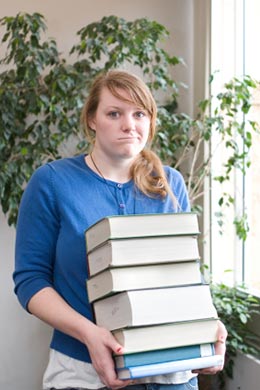 IUP’s
IUP’s 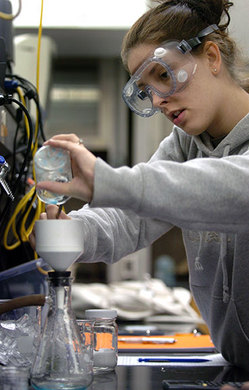
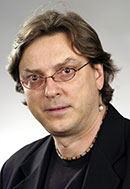 IUP Psychology professor
IUP Psychology professor 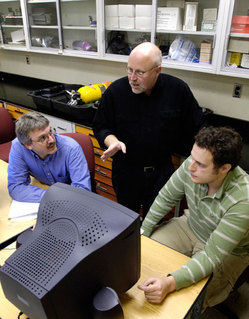
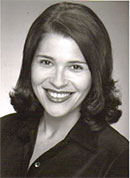 Okay, kind of an esoteric title. But a lot of times, the actual content of these academic papers is really intriguing and thought-provoking. When I read more on the
Okay, kind of an esoteric title. But a lot of times, the actual content of these academic papers is really intriguing and thought-provoking. When I read more on the  Over morning coffee, NPR listeners recently learned about eating habits that were discovered right here in Indiana, Pennsylvania. You can see the full story in
Over morning coffee, NPR listeners recently learned about eating habits that were discovered right here in Indiana, Pennsylvania. You can see the full story in 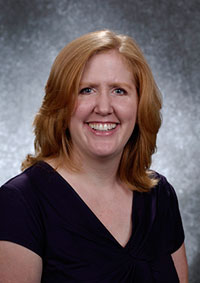 Criminology professor
Criminology professor